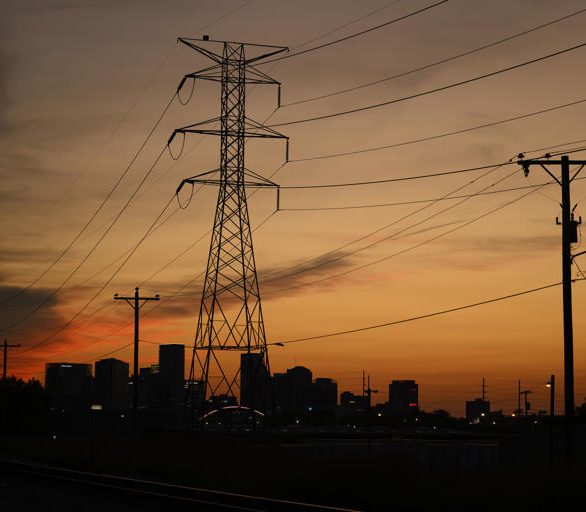
Permits put on hold for planned pipeline to fuel a new Tennessee natural gas power plant
A federal appeals panel has temporarily halted two permits needed to begin construction on a pipeline project in Tennessee that will supply a natural gas plant.
In a split 2-1 decision, the 6th U.S. Circuit Court of Appeals panel delivered a ruling Friday that, for now, prevents Tennessee Gas Pipeline Company LLC from starting to build its 32-mile (50-kilometer) pipeline through Dickson, Houston, and Stewart counties.
The project would fuel the Tennessee Valley Authority’s combined-cycle natural gas facility at the site of the coal-fired Cumberland Fossil Plant that is being retired.
Tennessee Gas Pipeline Company could have begun construction as soon as Tuesday, according to the court records.
TVA, meanwhile, plans to mothball its two-unit coal plant in two stages — one, by the end of 2026, to be replaced the same year by the 1,450-megawatt natural gas plant; and the second, shuttered by the end of 2028, with options still open on its replacement.
“This pause is a crucial opportunity to rethink the risks of fossil fuel development and prioritize the health and environment of Cumberland and our region,” said Emily Sherwood, a Sierra Club senior campaign organizer, in a news release Monday.
TVA’s plans to open more natural gas plants have angered advocates who want a quick redirection away from fossil fuels and into solar and other renewables, as TVA plans to retire its entire coal fleet by the mid-2030s.
The case is set for oral arguments on Dec. 10. If additional appeals are filed and succeed, the timeline could be reset again.
“We do not agree with the court’s temporary stay and are evaluating our options to ensure this project can be constructed in a timely manner,” the pipeline firm’s parent company, Kinder Morgan, said in a statement Monday.
Spokespeople for the Tennessee Valley Authority and the Army Corps of Engineers declined to comment. Chad Kubis, a spokesperson for the state attorney general’s office, said officials there are evaluating their next steps.
The Southern Environmental Law Center and Appalachian Mountain Advocates, on behalf of Appalachian Voices and the Sierra Club, asked the appeals court in August 2023 to reconsider a water quality permit issued by the Tennessee Department of Environment and Conservation for the pipeline. In September, the groups requested an appellate review of another permit from the U.S. Army Corps of Engineers.
In the ruling, Judges Eric Clay and Karen Moore argued that the groups risk irreparable harm if pipeline construction begins before the judges decide their case. The company’s plans would cross scores of streams and wetlands, where construction could do long-lasting damage to waterways and wildlife, the plaintiffs contend.
Judge Amul R. Thapar, in dissent, contended the court lacks jurisdiction for the state agency claim, and that the plaintiffs haven’t shown they would suffer irreparable harm or that their case would likely succeed.
TVA’s plans for expanding its natural gas fleet have drawn additional lawsuits, including over the Federal Energy Regulatory Commission’s approval of the Cumberland pipeline.
Another lawsuit claims that TVA’s environmental review of the Cumberland plant was perfunctory, in violation of the law. A separate challenge contests the decision-making for a planned 1,500-megawatt natural gas facility with 4 megawatts of solar and 100 megawatts of battery storage at the Kingston Fossil Plant, the site of a massive 2008 coal ash spill. Late last month, a judge dismissed a different lawsuit that challenged TVA’s process to approve plans for gas turbines at a retired coal plant in New Johnsonville.
The groups suing over gas expansion plans note that TVA is off track to meet the Biden administration’s goal of eliminating carbon pollution from power plants by 2035 to try to limit the effects of climate change, even with a majority of the board appointed by President Joe Biden. Several of TVA’s proposals for new natural gas plants have prompted criticism from the U.S. Environmental Protection Agency, including a warning that its environmental review of the Kingston project doesn’t comply with federal law.
TVA CEO Jeff Lyash has said repeatedly that gas is needed because it can provide power regardless of whether the sun is shining or the wind is blowing. He added that it will improve on emissions from coal and provide the flexibility needed to add 10,000 megawatts of solar to its overall system by 2035. TVA has a goal of an 80% reduction in carbon emissions by 2035 over 2005 levels and net-zero emissions by 2050.
TVA provides power to 10 million people across seven Southern states.
